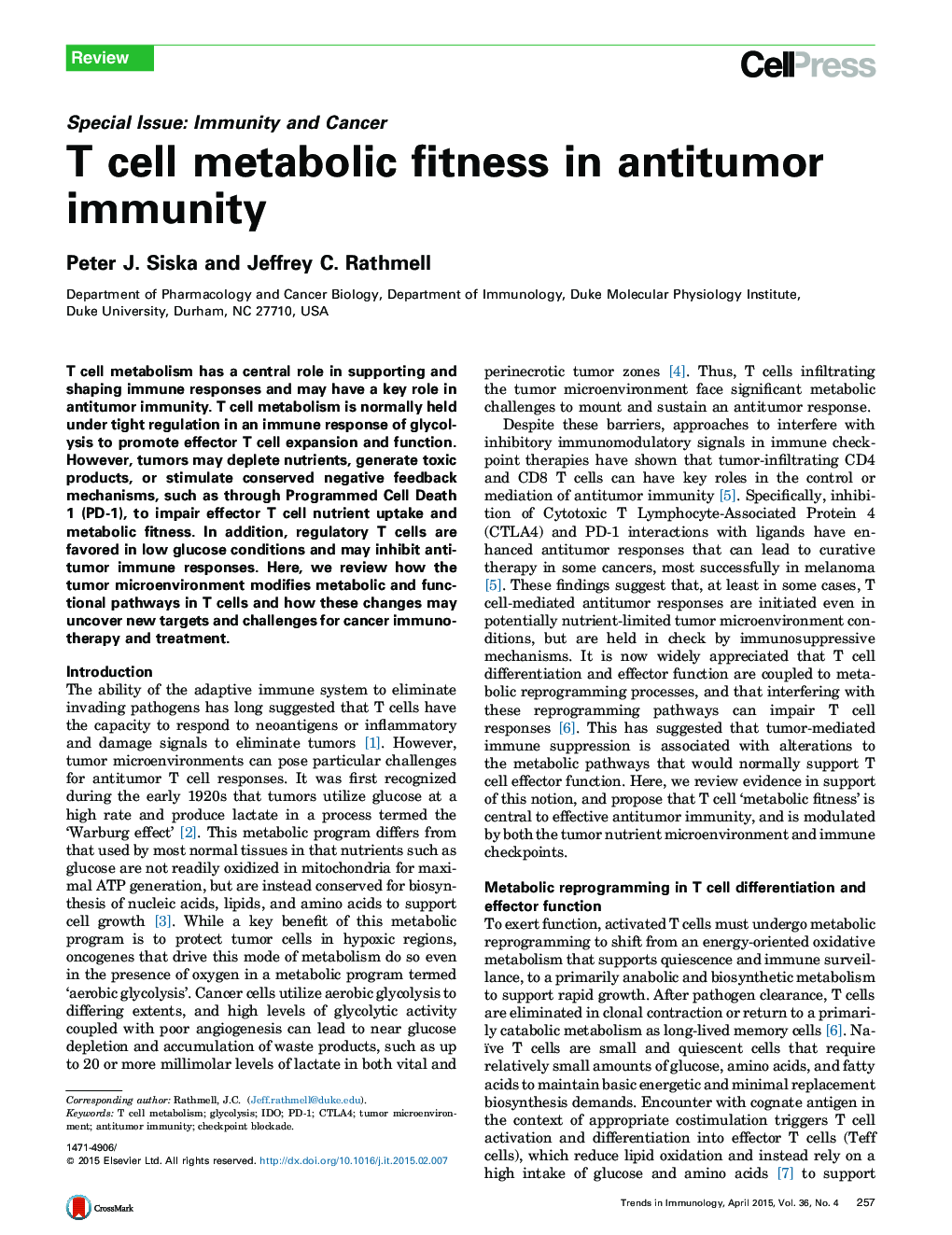| Article ID | Journal | Published Year | Pages | File Type |
|---|---|---|---|---|
| 4359868 | Trends in Immunology | 2015 | 8 Pages |
•Effector T cells and tumors utilize similar metabolic programs.•Nutrient depletion and accumulation of waste products in tumors can limit T cells.•Immunomodulatory signals can reduce T cell metabolic fitness.•Blockade of PD-1 and CTLA4 can enhance T cell metabolism and function.
T cell metabolism has a central role in supporting and shaping immune responses and may have a key role in antitumor immunity. T cell metabolism is normally held under tight regulation in an immune response of glycolysis to promote effector T cell expansion and function. However, tumors may deplete nutrients, generate toxic products, or stimulate conserved negative feedback mechanisms, such as through Programmed Cell Death 1 (PD-1), to impair effector T cell nutrient uptake and metabolic fitness. In addition, regulatory T cells are favored in low glucose conditions and may inhibit antitumor immune responses. Here, we review how the tumor microenvironment modifies metabolic and functional pathways in T cells and how these changes may uncover new targets and challenges for cancer immunotherapy and treatment.
